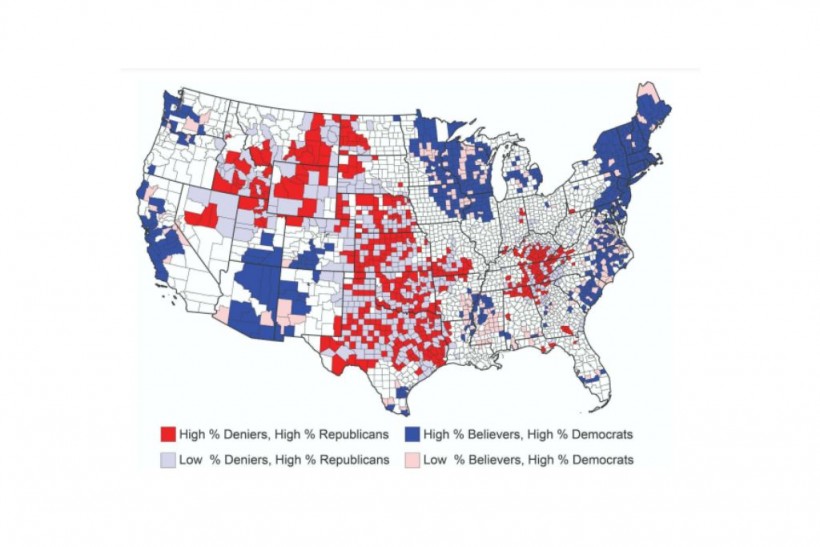A groundbreaking study using artificial intelligence revealed a shocking reality: nearly 15% of Americans deny the existence of climate change.
This study, conducted by University of Michigan researchers, sheds light on the prevalence of climate change denial in the United States, as well as the implications for addressing one of our time's most pressing challenges.

Latest AI Study Reveals 15% of Americans Reject Climate Change
Americans Remain Skeptical of Climate Change
Climate change, primarily caused by human activities such as the use of fossil fuels and deforestation, poses significant risks to communities around the world. Climate change is already having an impact, from rising sea levels to extreme weather events.
Despite overwhelming scientific evidence proving the reality of climate change, a sizable portion of the American population remains skeptical.
Researchers used data from the social media platform Twitter to analyze over 7.4 million tweets in order to gauge public attitudes toward climate change. What they discovered was both concerning and illuminating.
Across the country, 14.8% of Americans do not believe in climate change, with denialism higher in the central and southern regions.
Geographic trends show that belief in climate change is strongest on the West and East Coasts, where people are more likely to see the effects firsthand.
Denialism is most common in states such as Oklahoma, Mississippi, Alabama, and North Dakota. These findings highlight the significance of regional differences in influencing attitudes toward climate change.
Read Also: Climate Change May Cause More Diarrhea in Humans, According to New Suprising Study
Political Affiliations and Climate Change Denial
Perhaps unsurprisingly, political affiliation emerged as the primary determinant of climate change denialism. Individuals identifying with the Republican Party were found to be more likely to reject climate science, highlighting the deeply partisan nature of the issue.
Other factors influencing climate change opinion include education level, COVID-19 vaccination rates, income, and the reliance on fossil fuels in a given region.
The study also revealed the significant influence of certain individuals and media outlets in perpetuating climate change denialism. Former President Donald Trump and conservative media sources like The Daily Wire and Breitbart were identified as key influencers shaping public opinion on social media.
These figures contribute to the polarization of climate change discourse by spreading misinformation and casting doubt on scientific consensus.
What the Findings Mean
The consequences of climate change denial are far-reaching. It impedes efforts to mitigate the effects of climate change and creates a knowledge gap, preventing communities from taking proactive measures to increase resilience.
As extreme weather events become more frequent and severe, combating climate change denial is critical to protecting lives and livelihoods.
The study's authors have called on social media companies to take action in light of these findings. They recommend flagging and potentially banning accounts that continue to spread climate change misinformation, similar to measures taken in response to other harmful content.
By addressing misinformation at its source, these platforms can play an important role in promoting evidence-based discourse on climate change.
Stay posted here at Tech Times.
Related Article: Climate Change: Farmers Struggle as Temperatures Rise, Threatening Global Food Production










